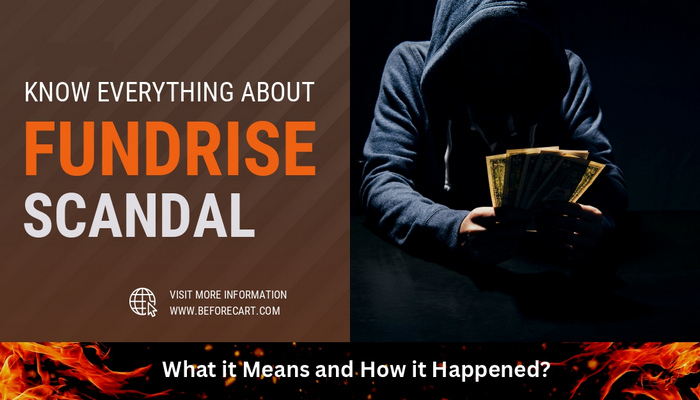Fundrise offers a unique opportunity for individual investors to access diverse real estate and entrepreneurial investments through its user-friendly platform.
By utilizing Fundrise, everyday people can invest in real estate properties and promising startups, expanding their portfolios beyond traditional options.
The company faced controversy when the previous CFO of one of its real estate investment trusts claimed that Fundrise mismanaged client funds. Nevertheless, there was insufficient evidence to support these allegations.
A former executive at Fundrise, the CFO of its real estate investment trust, accused the company of improprieties in handling customer assets. However, these accusations were never substantiated.
How does Fundrise work?
Table of Contents
Before delving into the challenges faced by Fundrise, it is essential to have a clear understanding of the company’s core operations and purpose.
In essence, Fundrise offers individual investors a platform to invest in real estate properties and promising startups, offering an alternative to traditional investment options.
The cornerstone of the Fundraiser’s offerings is the Real Estate Investment Trust (REIT), which allows the company to invest in revenue-generating real estate properties on behalf of its clients.
To date, Fundrise has successfully acquired over 200 real estate assets, valued at over $5.1 billion, on behalf of its clients through its REIT product.
These assets encompass a diverse range of properties, including single and multi-family homes and industrial properties such as warehouses.

Fundraiser recently introduced a fund targeting fast-growing, unlisted companies to diversify its investment opportunities.
To utilize Fundrise’s platform, individual investors pay a management fee based on a percentage of their investments, granting them access to real estate and entrepreneurial investment options.
For example, if an investor were to invest $1,000 in Fundrise’s REIT product, they would incur an annual fee of $1.50, calculated at a rate of 0.15 percent.
In addition to managing $3.2 billion worth of client assets, Fundrise has completed over 140 real estate projects.
Recommended: Luckin Coffee Scandal: What it Means and How it Happened?
An explanation of the Fundrise scandal
The existence of Fundrise can be attributed to a change in regulations brought about by the JOBS Act of 2012, particularly the Reg A+ component, which allowed firms to gather up to $50 million per year from non-accredited investors.
With this regulation change, the everyday individual gained access to investment options previously reserved for hedge funds and asset managers.
In November of 2015, Fundrise submitted a filing to the SEC indicating their intention to raise up to $50 million to form a Real Estate Investment Trust. This occurred three years following the passing of the relevant legislation.
Investors can now access the e-REIT with a minimum investment of only $1,000. However, their involvement in determining the properties for investment is limited.
Retail investors eagerly seized the chance and swiftly invested millions into the trust, primarily due to its attractive low-fee structure and guaranteed returns.
Unfortunately, just a short three months into the fund’s journey, events took a turn for the unfavorable. On February 9th, 2016, Fundrise officially lodged a grievance with the SEC and directly addressed its investors with the following statement:
“Experienced Strategic Investors and Advisors—
It is with a heavy heart that I must share the news of an employee’s alleged attempt to extort our company of over $1 million. They have made false claims that our company acted unethically in regards to two real estate transactions. Although we are confident in the integrity of our actions, we take all accusations seriously and will thoroughly investigate the matter.
In light of the allegations, we have commissioned a trusted financial audit firm to undertake a comprehensive examination. We are taking all necessary measures to safeguard both our stakeholders and the integrity of our organization.
Additionally, we are reaching out to the relevant law enforcement authority to file a complaint regarding what appears to be his unlawful actions.
Michael McCord, the former chief financial officer, and treasurer at Fundrise, joined the company in 2014 after honing his skills at KPMG, where he spent several years as an auditor. With over 27 years of experience in the industry, McCord quickly made a name for himself at Fundrise.
Ben Miller, the founder of Fundrise, temporarily stepped into McCord’s role while the situation was resolved. Meanwhile, McCord took a proactive approach to secure public support in the legal dispute.
Several weeks after that, in the month of March, the Washington Post conducted an interview with McCord and published the same. The interview featured McCord making the following remarks:
“The claims of extortion are unfounded and merely an attempt to distract from the truth. I voiced my concerns about potential fraudulent activity to Benjamin Miller, CEO, on February 8, 2016 at 10:00 a.m., and made it clear that I wouldn’t be a part of it. Despite negotiations, a mutual agreement on severance could not be reached.”
The company’s silence by 11:00 a.m., followed by the removal of my name from the website and discontinuation of access to vital systems and files, signified a constructive termination of my employment as all email privileges were revoked.
“I am eager to actively cooperate with any credible inquiry conducted by the SEC or other relevant authorities. The overwhelming show of support from both my colleagues and external individuals has been heartening and I express my gratitude to all those who extended their kindness.”
Fundrise rapidly issued a response to the Post and released the following statement:
“About five weeks back, we ended our association with McCord due to a suspected instance of criminal extortion. He threatened to cause harm to the company through false accusations unless we acceded to his demands of a payment of nearly $1 million and increased company shares within two hours. To safeguard the interests of our stakeholders, we immediately reported the matter to the relevant authorities including the SEC and local law enforcement. Moreover, we invited a prominent top-10 accounting firm to conduct a thorough review of our financial records.”
McCord unexpectedly arrived at Fundrise’s Washington office with two additional unidentified individuals, surprising Ben Miller and allegedly attempting to extort funds.
A different police officer in the article essentially validated Fundrise’s assertion but refuted the existence of any criminal proof.
The claims were exacerbated by the sudden departure of Dan Miller, Ben’s brother and co-founder of Fundrise, without explanation just months prior.
Curiously, contrary to what was anticipated, the feud between McCord and his former boss faded into oblivion. One can only wonder what became of it afterward.
Recommended: Why Did HQ Trivia Shut Down?
An overview of the Aftermath
The resolution of the disagreement between Fundrise and McCord appeared to have been successfully accomplished. The details surrounding their settlement, including whether it was reached through a court resolution, have remained undisclosed.
The company would have probably revealed the outcome if the settlement had a significant impact or at least acknowledged Fundrise’s innocence. Most likely, both parties had some liabilities they were willing to leave behind.
“Given its impressive track record, Fundrise has emerged as a top player in the industry, boasting cumulative annual returns exceeding 4% across its public REIT offerings, as reported on Fundrise official website.”
The company was able to secure hundreds of millions in funding, diversifying its investments by acquiring warehouses and establishing a billion-dollar growth equity fund to support technology startups in their later stages of growth.
Currently, nearly four lakh individuals have invested with Fundrise, resulting in a total transaction volume of $7 billion.
As for McCord, he initially took on the role of CFO at McQueen Farms, located in North Carolina.
“He launched two investment ventures, including Alumshares, allowing individual investors to invest in firms from their alma mater.”
Interestingly, McCord’s association with Fundrise is succinctly referred to as a “Fintech venture” on his Official LinkedIn profile.
Conclusion: The Fundrise Scandal
This article taught you everything about ”The Fundrise Scandal.” For more similar articles, you may visit our homepage.
Thanks for reading!





